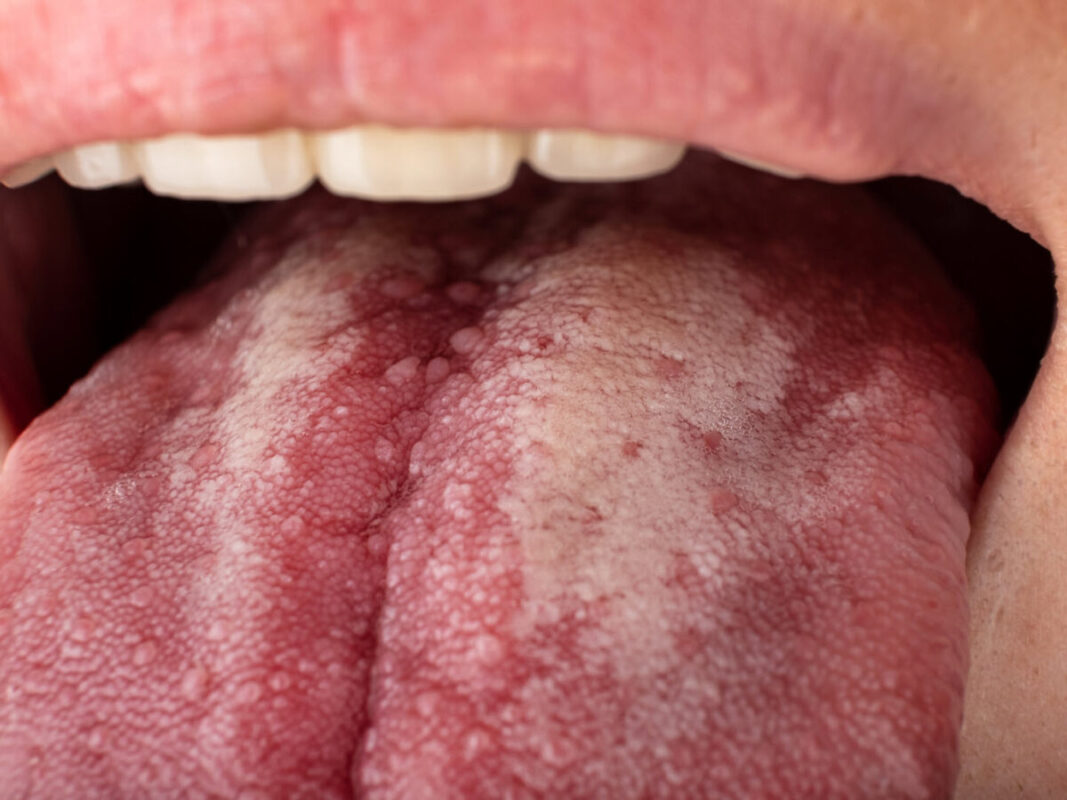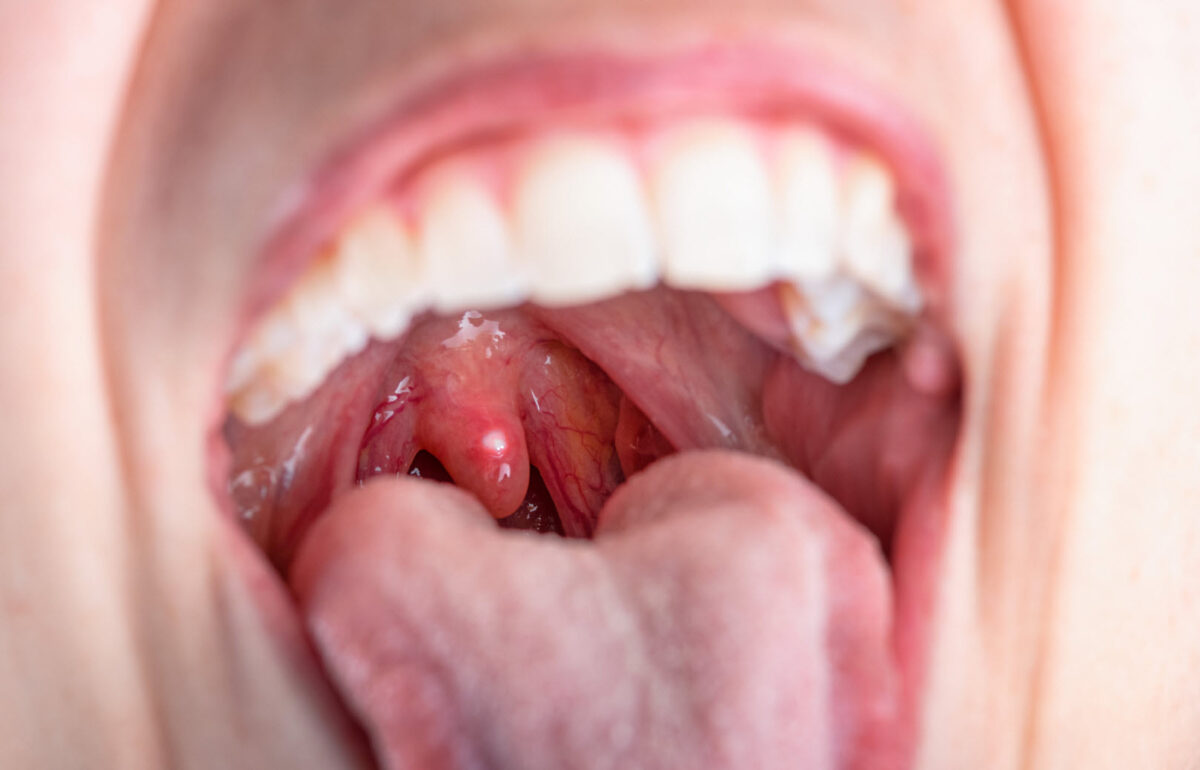Dry Mouth
Having a sticky, dry feeling in the mouth can be really uncomfortable. If this dry feeling is temporary, we can ignore it easily since the reason is often nothing serious and will go away on its own.
Temporary feelings of dry mouth can sometimes be due to dehydration or breathing dry air. However, if you are experiencing dry mouth persistently, you have every right to be here looking for the underlying cause! But don’t worry, some lifestyle changes or medical treatments can treat dry mouth.
The condition is called dry mouth, also known as xerostomia and can cause difficulty in speaking, eating, and digesting foods. Xerostomia or dry mouth happens if salivary glands do not produce enough saliva.

Salivary glands and Saliva Production
Why is saliva important for our oral health?
Salivary glands are located in and around your mouth and throat and are in charge of producing saliva. Saliva is essential for having good dental health and is what keeps your mouth moist. Saliva is made of water, for the most part, and mucus, proteins, antibacterial compounds and digestive enzymes, uric acid, electrolytes, and cholesterol. Saliva production occurs 24 hours a day, the majority in the afternoon and the least at night.
Our body requires a steady enough saliva flow to:
- keep our mouth healthy,
- keep our mouth wet,
- digest food,
- protect our tooth enamel,
- protect our oral tissues against sores or ulcers,
- accelerate wound healing,
- fight off mouth infections,
- prevent mouth dryness
- prevent bad breath by fighting germs in our mouth
- prevent tooth decay by flushing the food particles away from teeth
The saliva produced by the salivary glands will protect our mouth against tooth decay and fungal infections by neutralizing acids. Furthermore, saliva is a contributing factor to a person’s ability to taste.
Causes of dry mouth
Many of our patients ask why my mouth is dry even if I drink a lot of water? Well, sometimes, underlying health conditions are the causes of dry mouth.
Several factors may interfere with salivary flow in our mouth and cause xerostomia or dry mouth:
- Some medical conditions like diabetes, HIV/AIDS, Parkinson’s disease
- Chemotherapy, cancer treatment, radiation therapy for head and neck cancer; radiation therapy may cause damage to your salivary glands.
- Nerve damage to the head and neck area as a result of a surgery or injury
- Mouth breathing
- Certain medications like antidepressants, muscle relaxants, antihistamines, and decongestants, sedatives
- Both non-prescription and prescription medications (high blood pressure medications)
- Salivary gland diseases (for example, salivary gland dysfunction)
- Smoking tobacco or chewing tobacco
- Dehydration; certain conditions can cause you to become dehydrated, such as diarrhea, blood loss, vomiting, excessive sweating, etc.
- Stress and anxiety
- Aging
- Autoimmune diseases like Sjögren’s syndrome
- Alzheimer’s disease
People may experience severe dry mouth by using Methamphetamine and Marijuana.

What are the symptoms of dry mouth?
Dry Mouth Symptoms
While the most obvious sign would be dryness of the mouth, other dry mouth symptoms include:
- dry feeling in your mouth, tongue, or throat; sore throat
- constantly feel thirsty
- cracked lips
- dryness around the corners of your mouth
- having difficulty chewing or swallowing
- bad breath coming from the mouth
- thick and sticky saliva
- cracking of the oral mucosa
- mouth sores, ulcers
- a diminished sense of taste
- tooth decay
- burning sensation in the mouth
- fungal infections
- having problems when you want to wear dentures
Saliva protects the soft tissue of our mouth and prevents infections by neutralizing the harmful acids from plaque and sugary foods, and sugary drinks. If you have white or dark plaque or burning sensations in your tongue or soft tissues in your mouth, there is a chance you have fungal infections.
Dry mouth and dental health problems
How can dry mouth jeopardize your dental health?
A decrease in saliva production can interfere with good dental health. A dry mouth caused by an insufficient amount of saliva will eventually lead to:
Dry mouth and Gum disease
Dry mouth may lead to the infection and inflammation of your gums, referred to as gum disease. Gum disease is a serious oral disease and needs urgent oral care.
A dry mouth(insufficient saliva flow) can decrease your mouth ability to fight the bacteria that form dental plaque.
Buildup plaque in the mouth can dangerously increase the risk of gum disease.
Gum disease left untreated may cause the bacteria to reach the tooth roots and even affect the teeth supporting structures, resulting in having loose teeth or tooth loss.
Dry mouth and Tooth decay
If your mouth does not have enough saliva to protect your teeth, enamel, plaque, harmful acids, and food particles will remain on your teeth, attack the enamel, erode it and expose the dentin.
A loss of this protective layer of the teeth, dentin, will make the mouth more prone to tooth decay because dentin will decay faster.
How is dry mouth treated?
Treatment for dry mouth
Depending on the main underlying cause of dry mouth, treatment options may vary.
But the obvious thing here is you shouldn’t delay treatment for dry mouth.
A dry mouth needs to be addressed because it can increase the risk of other oral complications such as tooth decay and gum disease by making your mouth more susceptible to various infections including, yeast infection.
Discuss your dry mouth symptoms with your dentist or doctor.
Your dentist may need to go through your medical history, the medications you are currently taking or even ask for blood tests or salivary gland imaging to make sure you do not have salivary gland disorders.
Your main salivary glands may also be checked so that your stimulated and unstimulated salivary flow can be measured.
- If dry mouth is a result of a health condition, it can be managed by addressing that specific condition.
- If certain medications are causing dry mouth, your doctor may be able to substitute them with other medicines.
In some cases, minor surgery is needed to treat salivary gland blockages.
Tell me the best way to treat dry mouth
You may be able to manage dry mouth by following these tips:
- You can use products that can keep your mouth moist, like OTC mouth rinses or artificial saliva (saliva substitutes).
- Seek ways to keep your oral tissues as moist as possible.
- Stimulate saliva flow by chewing gum; for instance, you can chew sugar-free gum or suck on sugar-free candy.
- Keep your lips moist by frequent sipping water or sucking on ice cubes to prevent cracked lips.
- Maintain good oral health to decrease the risks of oral diseases that are caused by dry mouth.
Tips to avoid worsening dry mouth
- Do not take OTC antihistamines and decongestants.
- Avoid eating acidic foods and sugary foods too much.
- Limit your intake of acidic and sugary drinks such as soft drinks and fruit juices to lower your risk of tooth decay.
- Try to eat soft foods and moist foods rather than spicy foods and dry foods.
- Avoid smoking or chewing tobacco.
- Avoid using alcohol-based products.
By visiting your dentist regularly, you can ensure your oral health, prevent oral conditions, and make sure everything is going well in your mouth.
Need an appointment?
Don’t delay treatment for your dry mouth!
Our experienced dentists in Brisbane are here to ensure your dental health; don’t hesitate to get in touch with us on 07 3343 4869 to arrange an appointment.




































